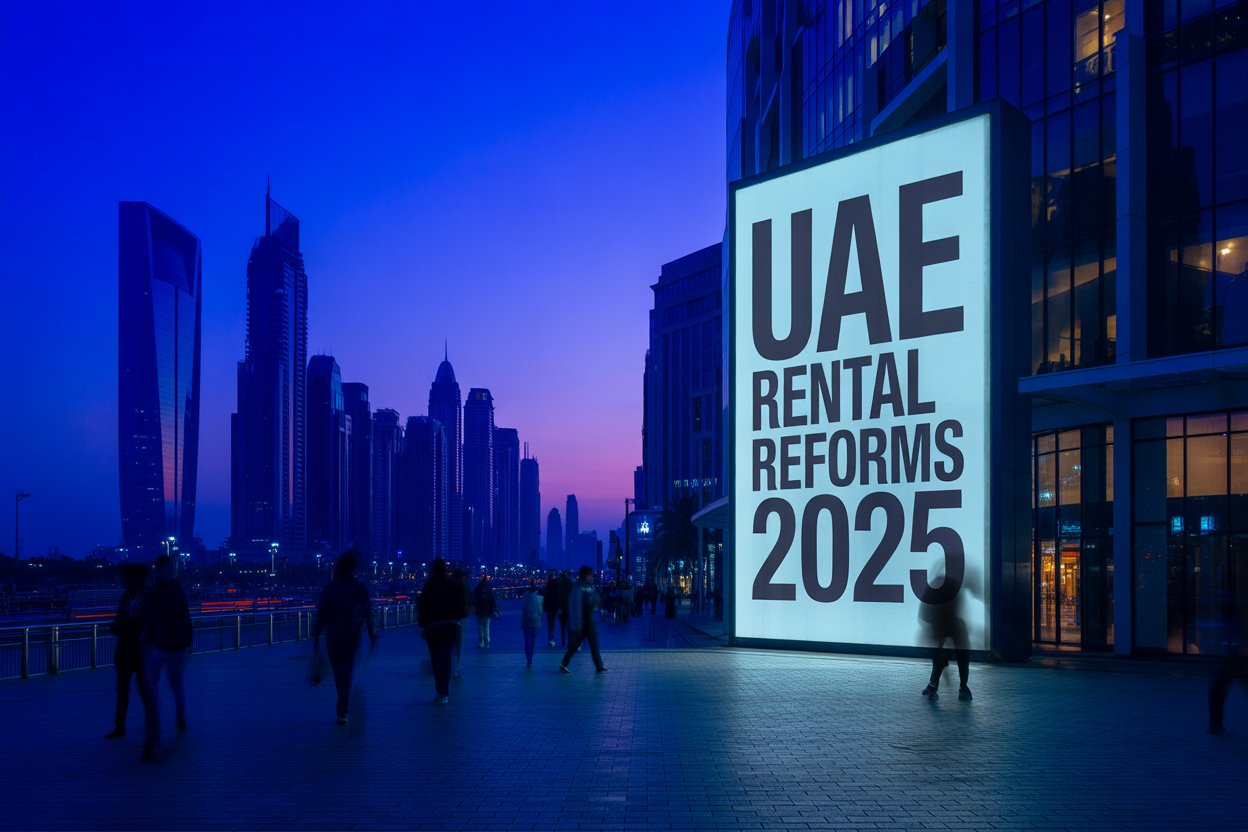The UAE rental market has seen several important updates in recent years, with changes aimed at balancing the rights of landlords and tenants, stabilizing rent increases, and making the leasing process more transparent.
As of 2025, new and existing laws across Dubai, Abu Dhabi, and Sharjah continue to reshape how property rentals are regulated. Here’s what landlords and tenants need to know.
Dubai: Rental Index, Notices, and Ejari
Dubai’s rental laws are primarily governed by Law No. 26 of 2007 (as amended by Law No. 33 of 2008) and overseen by the Dubai Land Department (DLD) and RERA (Real Estate Regulatory Authority).
- Rental Index: Rent increases are based on the official RERA Rental Index. If your current rent is close to the market average, increases are limited.
- Notice Period: Landlords must provide tenants 90 days’ written notice before changing rent or lease terms.
- Evictions: For reasons like sale, owner use, or renovation, a landlord must give 12 months’ notice via notary public or registered mail (Dubai Tenancy Law – Law 26 of 2007).
- Ejari Registration: All tenancy contracts, including occupants staying longer than 30 days, must be registered in the Ejari system. This ensures contracts are legally recognized.
Abu Dhabi: Rent Cap and Lease Controls
In Abu Dhabi, the Department of Municipalities and Transport (DMT) regulates tenancy.
- Rent Cap: Annual rent increases are capped at 5% upon renewal, according to DMT regulations.
- Leasing Zones: Areas like the Abu Dhabi Global Market (ADGM) operate under common law frameworks, offering a different approach to commercial leases.
Sharjah: Three-Year Rent Freeze
Sharjah’s tenancy rules are among the strictest in the UAE:
- Rent Freeze: Rents cannot be increased for the first three years of a tenancy contract (Sharjah Municipality).
- Evictions: Permitted only for specific reasons such as demolition, personal use, or major renovations, and always subject to prior approval.
Service Charges and Community Fees
For jointly owned properties in Dubai, RERA approval is required before service charges can be levied. These fees must be deposited into dedicated accounts to prevent misuse (Dubai Land Department).
Additionally, the Tayseer platform introduced by DLD allows owners to pay overdue service charges in installments, improving compliance and reducing disputes.
What Landlords Should Know
- Rent increases must align with the official indices.
- Notices for rent changes (90 days) and evictions (12 months) are mandatory.
- All tenancy agreements and occupants must be registered in Ejari (Dubai) or equivalent systems in other emirates.
- Service charges must follow official approval processes.
What Tenants Should Know
- Rent increases are regulated and capped in most emirates.
- You cannot be evicted without proper legal notice and valid reasons.
- Ensure your tenancy contract is registered with the relevant authority.
- Use official rent calculators (like the Dubai RERA Index) to verify if a proposed increase is valid.
- For disputes, tenants can approach the Rental Disputes Centre in Dubai or similar bodies in other emirates.
Practical Tips
- Verify rents using official indices before accepting any increase.
- Document all notices and communication in writing.
- Plan ahead for renewals, start discussions at least three months before expiry.
- Seek advice from real estate professionals or legal experts for complex disputes.
Conclusion
The UAE’s 2025 rental framework gives both landlords and tenants greater clarity and fairness. With rent caps, notice rules, and stricter registration requirements, the reforms aim to make the housing market more stable and predictable.
For both parties, staying informed and using official platforms like Ejari, DLD, and Sharjah Municipality is the best way to ensure compliance.
Disclaimer
This article is for informational purposes only. UAE rental laws are updated periodically. For official guidance, consult the Dubai Land Department (DLD), Abu Dhabi DMT, or Sharjah Municipality before making rental or leasing decisions.
For many landlords and tenants, these reforms highlight the importance of flexibility. The same is true when planning your business setup in Dubai, from selecting office space to securing licenses, the right decisions early on save both time and cost.


Leave a Reply